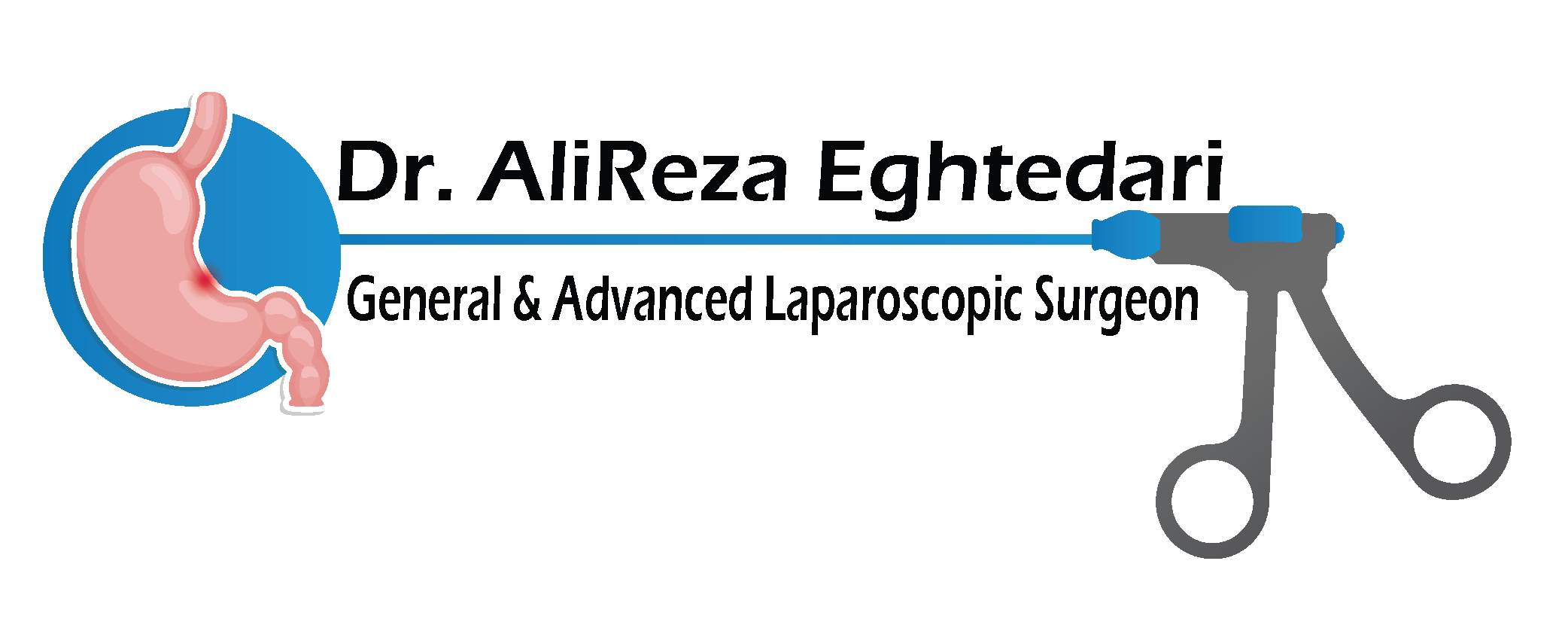Hiatal Hernia Surgery in Dubai by Dr. Ali Reza
When the top section of your stomach keeps rising through your ribcage and into your chest, you have a hiatal hernia. Between your abdomen and chest is the diaphragm, a big muscle. This muscle assists you in breathing. Normally, the stomach is below the diaphragm, but a part of the stomach rises through the muscle in persons with a hiatal hernia.
Types of Hiatal Hernia Surgery
There are two types of Hiatal Hernia, namely:-
- Sliding Hiatal Hernias ; This is the most prevalent type of hiatal hernia. The gap causes your stomach and esophagus to slip into and out of your chest. Sliding hernias are often tiny. They are normally asymptomatic and do not require treatment.
- Fixed, or Paraesophageal, Hernias : A fixed hernia occurs when a portion of your stomach pushes through your diaphragm. The majority of cases are minor. However, there’s a chance that blood flow to your stomach will be obstructed. It is a medical emergency if this happens since it could cause catastrophic injury.
Symptoms of Hiatal Hernia
Even corrected Hiatal hernias are uncommon to cause symptoms. If you do get symptoms, it’s usually from, bile, stomach acid, or air getting into your esophagus. Symptoms that are common include:
When you lean over or lie down, your heartburn grows worse.
- epigastric pain
- chest pain
- difficulty swallowing
- belching
- acid reflux or GERD
Causes of Hiatal Hernia
Hiatal hernias can be caused by a variety of factors, including:
- Obesity
- Having an unusually lengthy hiatus at birth
- During an accident, the force from a seatbelt can cause injury or trauma to the area.
- Pressure on the surrounding muscles that is persistent and intense due to:
- Coughing that persists
- Heavy object lifting
- Recurrent vomiting
Risk factors
Many Hiatal hernias are caused by unknown factors. Injury or other damage to muscular tissue might weaken it in certain persons. Your stomach will be able to push through your diaphragm as a result of this. Another cause is repeatedly exerting too much pressure on the muscles surrounding your stomach. This can occur if:
- vomiting
- coughing
- moving hefty items
- bowel motions that are strained
Some persons have an excessively large pause at birth. This makes it easier for the stomach to move through. A hiatal hernia can be caused by several factors, including:
- obesity
- ageing
- smoking
- You can’t completely avoid a hiatal hernia, but you can make it worse by doing the following:
- shedding extra pounds
- bowel motions without straining
- obtaining assistance when lifting heavy objects
Surgery for a Hiatal Hernia
Repairing bigger Hiatal hernias and treating heartburn symptoms may necessitate surgery. If your reflux symptoms are not managed by medication or you have a form of hernia termed a gigantic esophageal hernia, also known as intrathoracic stomach, Hiatal hernia surgery is recommended.
Types of Hiatal hernia surgery
Although most Hiatal hernias may be addressed with lifestyle changes or medication, some patients will require surgery to correct them.A hiatal hernia can be repaired by tightening your diaphragm and drawing the stomach back into the abdomen from the chest cavity.
Depending on the stage of your hiatal hernia, a surgeon may prescribe surgery.
Common surgical options are:-
Hiatus repair surgerySutures and prosthetic mesh are used to tighten and shrink the enlarged hiatus. It’s the opening in the diaphragm through which the esophagus travels on its route to the stomach. It is used for early-stage Hiatal hernias to keep your stomach from bulging upward through the hiatus.
- Nissen Fundoplication : The upper component of the stomach, called the fundus, is wrapped around the lower portion of the oesophagus with stitches to keep the stomach in place below the diaphragmatic hiatus. The stitches put pressure on the end of your oesophagus, preventing stomach acid and food from rising into your oesophagus.
- Collis-Nissen gastroplasty : In patients with more complex forms of Hiatal hernia caused by esophageal shortening, this operation is utilized to extend the oesophagus. A surgeon will utilize tissue from the top region of your stomach to lengthen your oesophagus in this treatment.
Treatment/Repair (open and Larascopic) of Hiatal hernia
Surgery to fix a hiatal hernia usually takes 2 to 3 hours and is performed under general anesthesia, which means you’ll fall asleep and won’t feel any discomfort. Different procedures are available for repairing a hiatal hernia in Dubai:
- Open repair- To do surgery in an open repair operation, your surgeon will make a wide surgical cut in your belly.
- Laparoscopic surgery – Your surgeon will create multiple small slits in your belly and put a thin tube with a small camera through one of the cuts in laparoscopic surgery. The other cuts will be used to implant surgical tools. To observe the inside of your stomach and perform the procedure, your surgeon will utilise a monitor connected to the camera.
Book an Appointment for Hiatal hernia surgery in Dubai UAE
If you are looking forward to an experienced surgeon for Hiatal hernia surgery in Dubai, Dr. Ali Reza is the name you can trust. Having many years of experience and expertise in handling different types of surgery related to hernia, you too will get a solution for your problem. Book an appointment today!
Many patients with Hiatal hernias don’t have any symptoms and don’t require medical attention. However, for patients with more severe hernias, lifestyle changes, medication, and, in some circumstances, surgery may be required. Losing weight and quitting smoking, maintaining a healthy weight, eating smaller portions, restricting certain fatty foods, and eating meals at least 3 to 4 hours before lying down will all assist with hiatal hernia symptoms.
